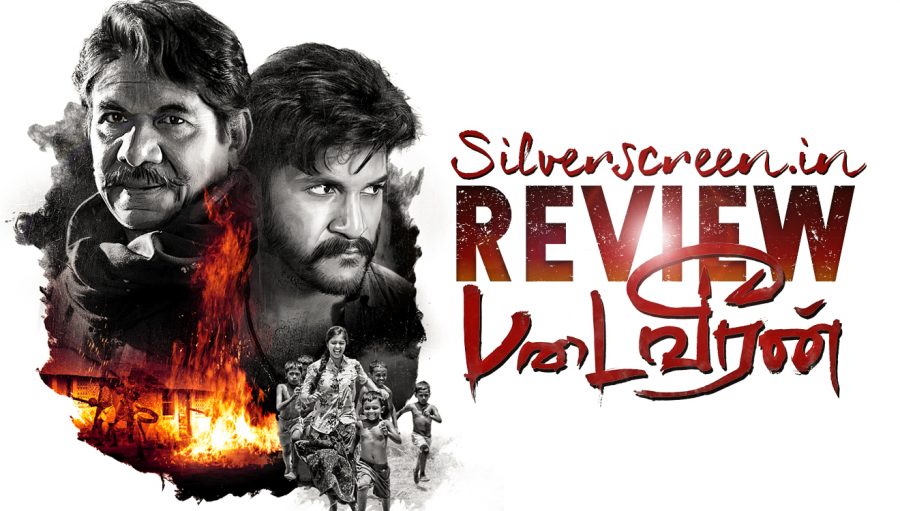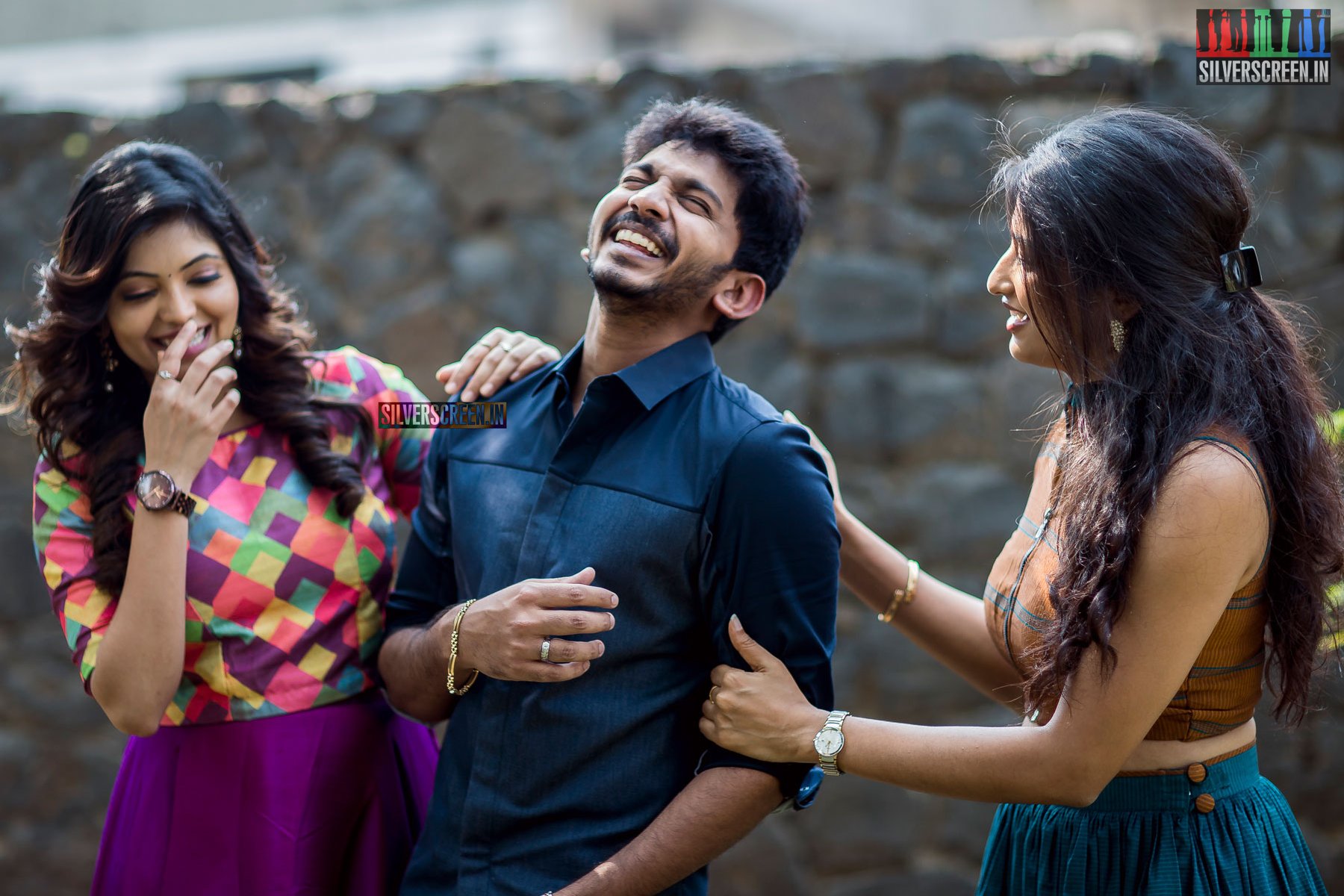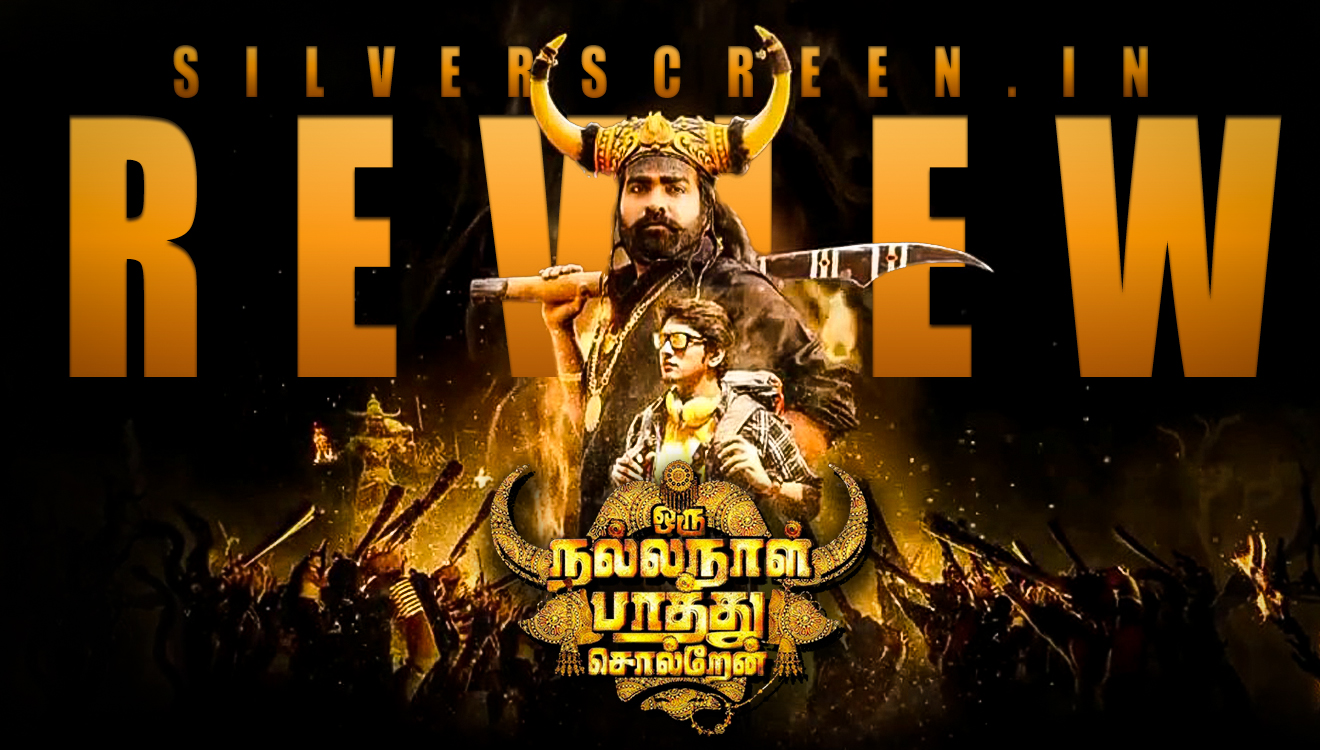Perhaps the most brilliant feature of Padaiveeran is its ability to be utterly believable, no questions asked. The rustic landscape, characters who certainly belong in it, a tale – so riveting and poignant – which, even when transplanted in a starkly different setup, wouldn’t seem out of context.
In the second release of the weekend that talks caste and related evils – and set in a rural canvas – this directorial debut of Dhana cannot be rivalled. It touches upon caste in an intimate way that Madura Veeran, PG Muthiah’s venture doesn’t. Muneeswaran (Vijay Yesudas) is a youth of the land; he wanders around aimlessly without a job, is constantly heckled by his father and fellow village folk, but to no avail. Munees is delightfully irreverent though; he heartily eats his way through his father’s barbs, demands more kari. In some ways, Padaiveeran, in a backdrop of violent caste politics, is the tale of a reckless youth who becomes a man, an adult, experiencing those life-changing forces that deal him a harsh lesson or two. He evolves over the course of the film, through frames – lovingly-cut, but don’t always seek to endear him to the audience. During a particular instance, Munees runs away from his boot camp; the one in which he had enrolled himself, wanting to become a cop, almost threatening his father to part with the money. But as the training becomes intense, he scales walls, hits a few policemen and breaks away. His oor would have none of it though, it’s a matter of pride for them, and they cart him back to the camp as one would an errant child.
Padaiveeran is almost breezy, even deceptively humorous for what it sets out to achieve; there’s nary a whiff of its true intent until the latter half, when it emerges in all its dark glory. The best parts of the film are its leads, both debutants. Emotions flit across Vijay Yesudas’s face as if he were a dancer; in a particular instance that talks for itself, Muneeswaran cruelly mocks Malar (Amritha), but in the next, as she stands before him – tall, unperturbed, beautiful – he’s robbed of speech. Munees is unsure of what he feels; it’s evident that he likes what he sees, but he’s also very very puzzled. Yesudas’s face, in a delightful close-up, articulates all that and more. In the following scene, Munees, who has always had an acerbic tongue, grows visibly still as Malar passes by. It makes for one of the most thoughtfully constructed romantic scenes, if not the most politically correct.
Recommended
If Madura Veeran had barely skimmed the surface of the intense, often bloody and violent caste politics, Padaiveeran delves deep, sorts and examines the reasons and attributes that give way to communal hatred – and love. For instance, we learn that the feeling of communal belonging, of caste, is something that works subliminally – often rearing its head only when challenged. It exists, the film reiterates, even in the hearts of carefree youth like Muneeswaran, baring its fangs like a poisonous cobra that strikes to wound – almost reflexively, thoughtlessly. That way, Dhana is quite the intuitive filmmaker. He knows what to work with, and how – he chooses a youthful someone whom one barely expects to be a caste fanatic, introduces relatable character attributes, places him in situations lifelike and unreal at the same time, gives a taste of what it really means to live as and among people who pride on their identity as if their life depends on it. Then, subverting the age rhetoric, he colours Bharathiraja – one of the village elders – in pleasing, non-communal tones.
Dhana is also someone who doesn’t care about pulling the rug from under your feet when it gets a little too cozy. That he does, quite effortlessly – and uninhibitedly – for a debutant. That instant, right when the world seems to crumble, is the one that the filmmaker uses to drive home his message. It may not be too subtle, but it certainly makes you think.
*****
The Padaiveeran review is a Silverscreen original article. It was not paid for or commissioned by anyone associated with the movie. Silverscreen.in and its writers do not have any commercial relationship with movies that are reviewed on the site.



